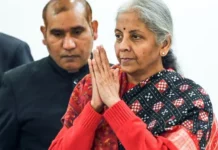Only a few decades ago, gaming was mainly experienced on consoles and PCs. What began as a niche industry for a handful of marginalized geeks is now the most important entertainment industry globally. Gaming culture is traditionally shared between Japan and Western countries. Yet, it quickly spread to other countries, including India.
In fact, India now has a significant impact on the gaming industry. Here’s an overview and analysis of India’s economic impact on today’s gaming.
The Number 1 Gaming Country in The World… On Mobile!
Unlike Western countries, India jumped onto the gaming scene directly on mobile. People were introduced to the joys of digital entertainment with smartphones. Indians love to watch movies, listen to music, and, more importantly, play games on mobile. The titles they play are also varied, ranging from slots at this fancy crypto casino to online multiplayer shooters like Call of Duty Mobile.
As of 2023, 90% of the mobile market shares, with 9.66 billion apps downloaded. For comparison, US players downloaded 157.1 million apps during the same year. Such a difference can’t only be explained by population numbers. Even China’s mobile market only had 657 million in 2023. So, it begs the question of why India is passionate about mobile gaming.
The Reasons Behind India’s Leadership in Gaming
If gaming existed in the early 2000s, it remained expensive and a niche that only the middle class could afford. However, after 2010, smartphones became the norm. The country heavily invested in network infrastructure, and 4G networks quickly sprouted.
Technology also became more affordable. Indians now have easier access to devices performant enough to run the latest games. To accompany this trend, mobile data plans have also become cheaper, so everyone can get an internet connection.
All these advancements paved the way for the rise of mobile esports. More and more young Indians are getting into competitive gaming, and doing it professionally is their dream.
Furthermore, esports’ inclusion in competitions such as the Commonwealth Games 2022 or the Asian Games 2023 helped get the discipline the recognition it so desperately sought. Indian teams proved successful, which made it even more appealing for the young generation.
An Essential Sector For The Country
The Indian government has officially recognized esports as a discipline. It also supports the development of the gaming industry. They’re giving funds to help startups in emerging technologies, and gaming is among the top priorities. This is a logical stance when considering that gaming currently represents around 2 to 3 billion USD each year, which is 1.5-2% of the country’s GDP.
Therefore, the government aims to develop the industry further in the next decade, with the hopes of doubling its economic impact. However, the Indian gaming industry faces challenges.
Challenges The Indian Gaming Industry Must Overcome
With such rapid growth, the gaming industry in India is naturally facing challenges stemming from its success. Currently, there’s a flagrant lack of regulation, and some of the government’s decisions are ambiguous for players. Moreover, all states have different rules when it comes to online gaming. Some are more liberal and others straight-out ban specific games. Besides, the 28% GST on online gaming hasn’t been well-received.
Furthermore, even if the country’s network infrastructures have improved, there’s still a long way to go. Reliable and fast internet still isn’t a given throughout the country. For instance, only 31% of the rural population uses the internet, a stark difference with the 67% observed in urban areas.
India is the biggest game consumer, but it’s far from being a significant nation when it comes to actually developing them. The most popular games in the country are American-made, and there’s still a need for a studio to be proud of.
Moreover, India’s culture is intricate and complex for foreigners. So, localizing the games is challenging. Between each region’s sensitivities, languages, and specificities, making a game that can appeal to all is almost impossible. So far, only one succeeded in adapting to India’s diverse tastes: Ludo King.
India is Set To Be a Trendsetter in Gaming
The shifting power toward India in the gaming industry will likely impact it more heavily in the next decade. Major studios are already prying on this new and juicy market. Meanwhile, the government tries to help Indian projects, and the people keep consuming this form of entertainment.
Soon, India could become a trendsetter, and the market most gaming actors will try to seduce to ensure profitability.
Also Read: ASUS launches enhanced ROG Ally X handheld gaming PC







